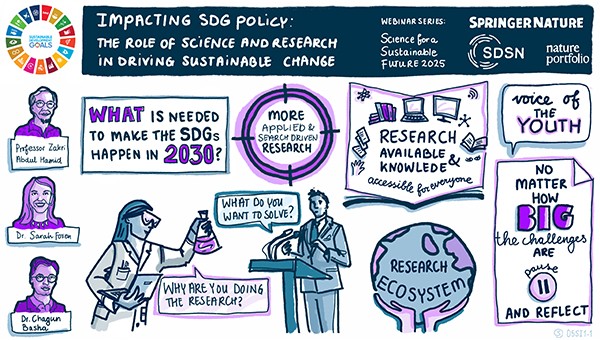Download the white paper
The COVID-19 pandemic brought about mass global disruption and presented a significant setback to the achievement of the Sustainable Development Goals (SDGs). Yet, it paved the way for more science-informed decision-making, enabling the research, scientific, and policy communities to join together like never before, and proving the importance of interdisciplinary approaches to combating crisis, developing effective policies, and accelerating innovation.
In May 2021, on the sidelines of the UN Multi-Stakeholder Forum on Science, Technology, and Innovation, Springer Nature and the UN Sustainable Development Solutions Network (SDSN) hosted a virtual debate on how to bridge the divide between the research and policy communities to accelerate innovation on the SDGs and build resiliency post COVID-19. The debate also drew on insights from a white paper on how to foster greater collaboration and inclusive problem-solving between these communities.
Science for a Sustainable Future (SFSF) is a joint initiative of the United Nations Sustainable Development Solutions Network (SDSN) and Springer Nature.














